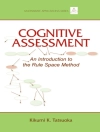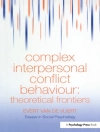Jerome Bruner is one of the grand figures of psychology. From his role as a founder of the cognitive revolution in the 1950s to his recent advocacy of cultural psychology, Bruner′s influence has been dramatic and far-reaching. Such is the breadth of his vision that Bruner′s work has inspired thinkers in many of the major areas of psychology and has had a powerful impact on adjacent disciplines. His writings on language acquisition, culture and education are of profound and enduring importance. Focusing on the dominant themes of language, culture and self, this volume provides a comprehensive exploration of Bruner′s fertile ideas and a considered appraisal of his legacy.
With a distinguished list of contributors including Jerome Bruner himself, the result is an outstanding volume of interest to students and scholars in psychology, philosophy, cognitive science, anthropology, linguistics, and education.
Among the contributors are Judy Dunn, Howard Gardner, Clifford Geertz, Rom Harré, David Olson, Edward Reed, Talbot Taylor, Michael Tomasello, and John Shotter. The volume is framed by an editorial introduction that considers the distinctively philosophical dimensions of Bruner′s thought, and a final chapter by Bruner himself in which he re-examines prominent themes in his work in light of issues raised by the contributors.
The volume will be invaluable to students and researchers in the fields of psychology, cognitive science, education, and the philosophy of mind.
表中的内容
Introduction – David Bakhurst and Stuart G Shanker
Bruner′s Way
Imbalancing Act – Clifford Geertz
Jerome Bruner′s Cultural Psychology
Bruner on Language Acquisition – Michael Tomasello
The House that Bruner Built – Stuart G Shanker and Talbot J Taylor
Bruner and Condillac on Learning How to Talk – Talbot J Taylor
Emotion, Pragmatics, and Social Understanding in the Preschool Years – Judy Dunn and Jane R Brown
Education – David R Olson
the Bridge from Culture to Mind
Towards a Cultural Ecology of Instruction – Edward S Reed
Commentaries – Howard Gardner
Jerome Bruner as Educator: Personal Reflections
Reed on Bruner on Education – David Bakhurst
Infancy and the Birth of Competence – Duane Rumbaugh, Michael Bera and Christopher Elder
Bruner and Comparative-Developmental Research
Norms in Life – Rom Harré
Problems in the Representation of Rules
Towards a Third Revolution in Psychology – John Shotter
From Inner Mental Representations to Dialogically Structured Social Practices
Memory, Identity, and the Future of Cultural Psychology – David Bakhurst
In Response – Jerome Bruner
关于作者
David Bakhurst works primarily in three areas: Russian Philosophy, philosophicalpsychology, and moral philosophy. In 1991, he published a study of the philosophical culture of the USSR, Consciousness and Revolution in Soviet Philosophy (Cambridge University Press), focused on the life and work of Evald Ilyenkov (1924-79). Ilyenkov, like the renowned psychologist Lev Vygotsky, maintains that each individual mind is formed through initiation into culture. Bakhurst explores this idea in many recent publications and examines parallel views in the thought of such thinkers as Wittgenstein and Jerome Bruner. His ethical writings include several papers on moral realism and ethical particularism. Educated at Keele, Moscow, and Oxford, Bakhurst studied with Jonathan Dancy, Felix Mikhailov, and John Mc Dowell. He has twice held visiting fellowships in Oxford, most recently at All Souls College (2001-02). In 2003, he was appointed to an honorary chair in the School of Education at the University of Birmingham, UK.












